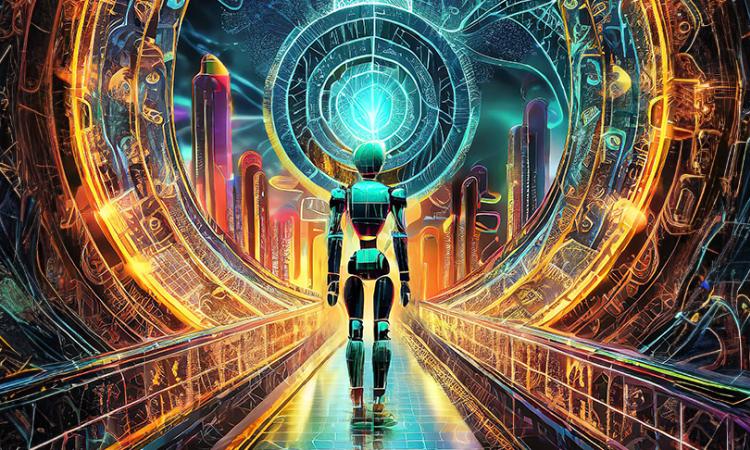

Engineers working in machine learning and AI offer a crash course in the basic concepts and buzzwords that have moved from the lab to everyday life.
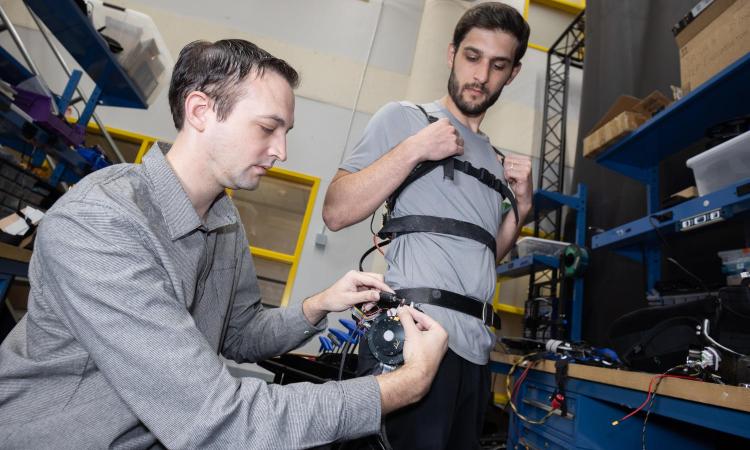
Georgia Tech engineers are refining AI tools and deploying them to help individuals, cities, and everything in between.
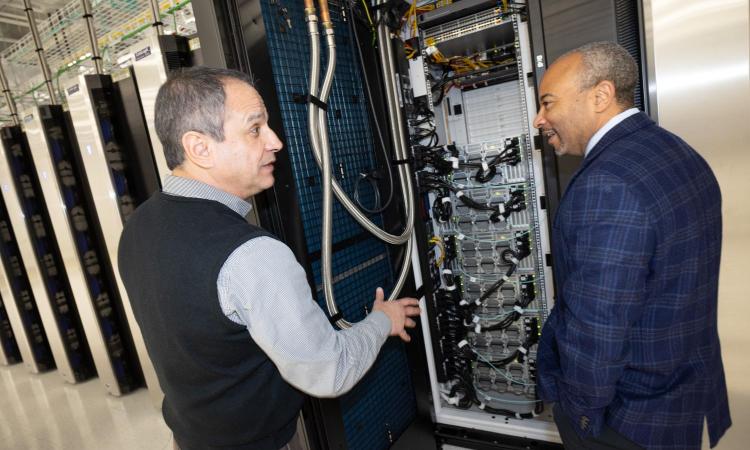
A first-of-its-kind AI Makerspace created in collaboration with NVIDIA will give undergrads unprecedented access to supercomputing power for courses, projects, and their own innovations.
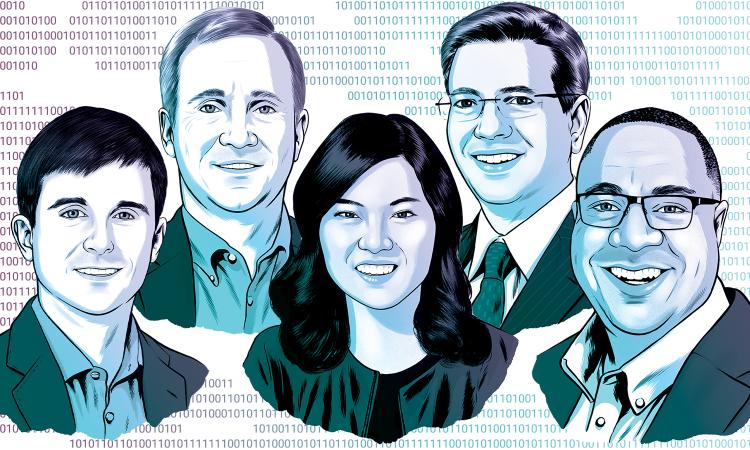
Corporate leaders with ties to the College describe AI in their current roles, what will happen in the next five years, and how students and professionals will need to adapt.
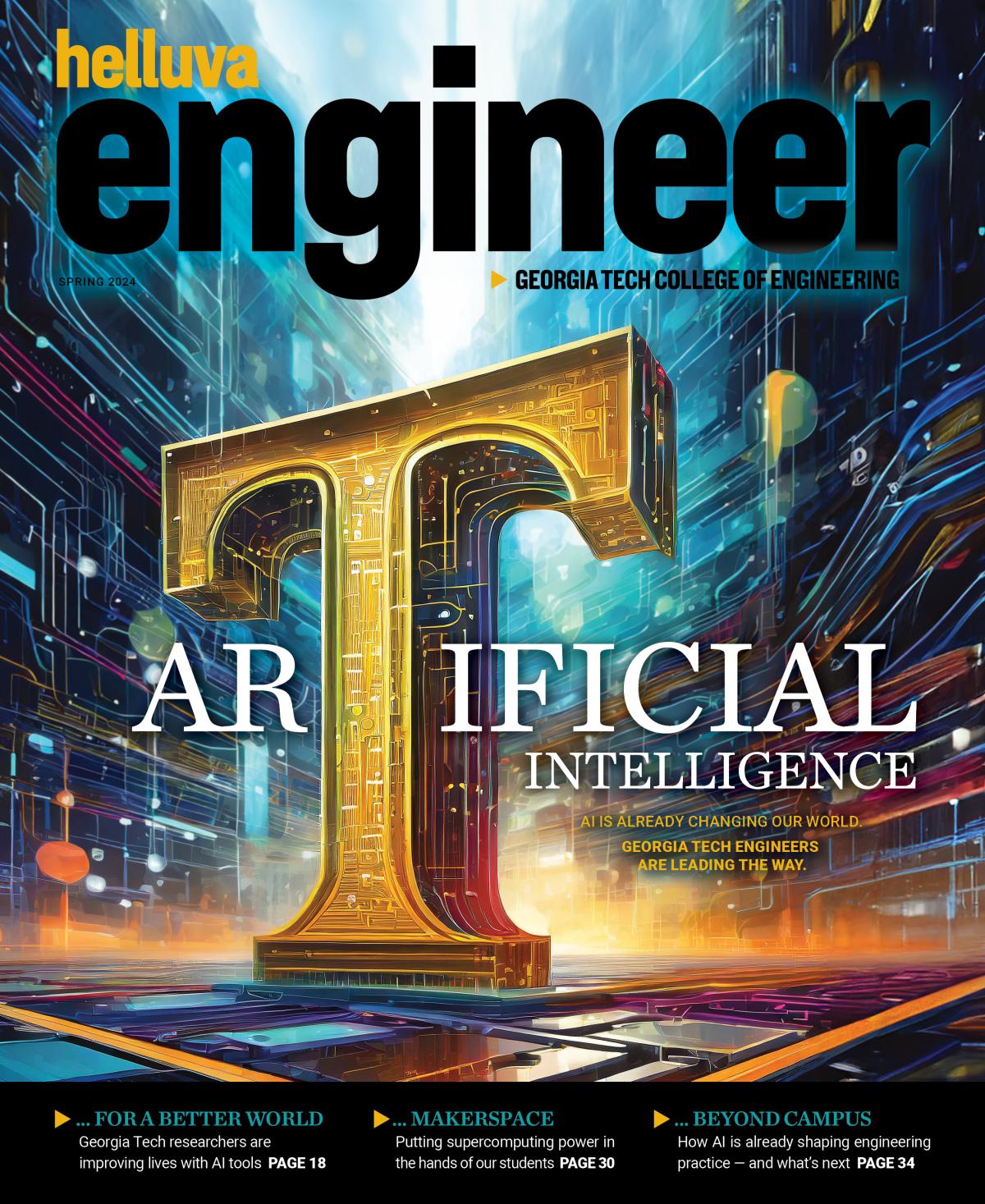
We didn’t have to brainstorm very long to decide our focus for this issue of Helluva Engineer. Artificial intelligence is everywhere, and that’s why it fills these pages.
As a computer engineer who studies cybersecurity, it’s not a surprise to me that AI has found its way into our homes, workplaces, smartphones, and nearly everything in between. We have seen AI approaching for decades. The biggest difference in the past two years or so is that supercomputers and the chips that power them have become much more affordable to government, businesses, and higher education.
The expanded availability of AI is allowing our College to launch new initiatives to better educate our students as they prepare to enter an AI-native workforce. We call this initiative “AI for Engineering.” It began in January, when we announced the creation or reimagining of 14 core AI courses for undergrads. By the fall, we will have undergraduate AI courses in every discipline in the College. In March, we finalized Georgia Tech’s first minor in applications of AI and machine learning.
In April, we made our biggest move yet: the nation’s first AI Makerspace.
We unveiled this new resource for our students thanks to a collaboration with NVIDIA, one of the biggest names in tech. We are the first university in the country to give our students access to a powerful AI supercomputing hub like those typically reserved for research or available only at tech companies. The AI Makerspace will help our students learn in the classroom, work on projects, and tap into our physical makerspaces. We’re going to help them become AI natives, and then get out of the way as they help build the future.
We’ll continue to push and define the boundaries of the technology, always with an eye toward improving the human condition. Just as many of our alumni are doing in the workplace.
Raheem Beyah
Dean and Southern Company Chair